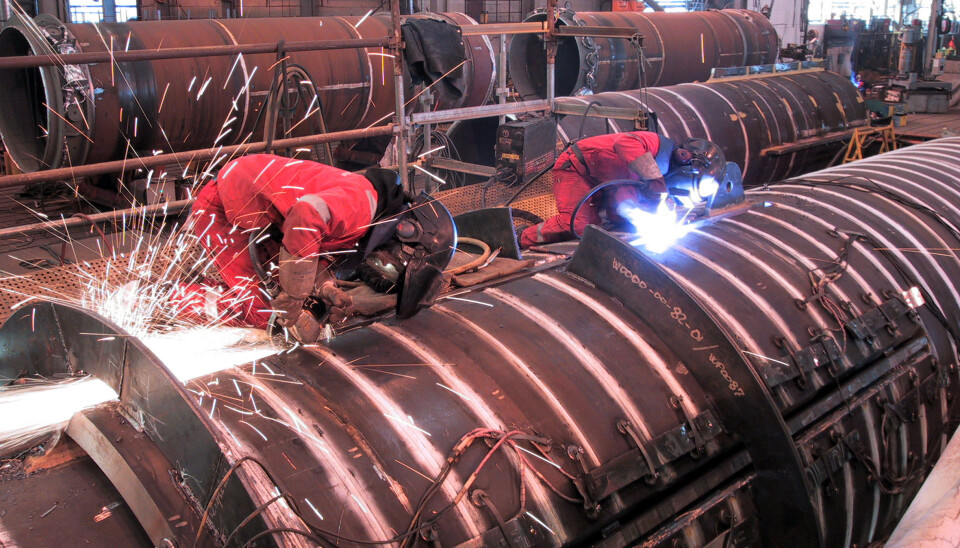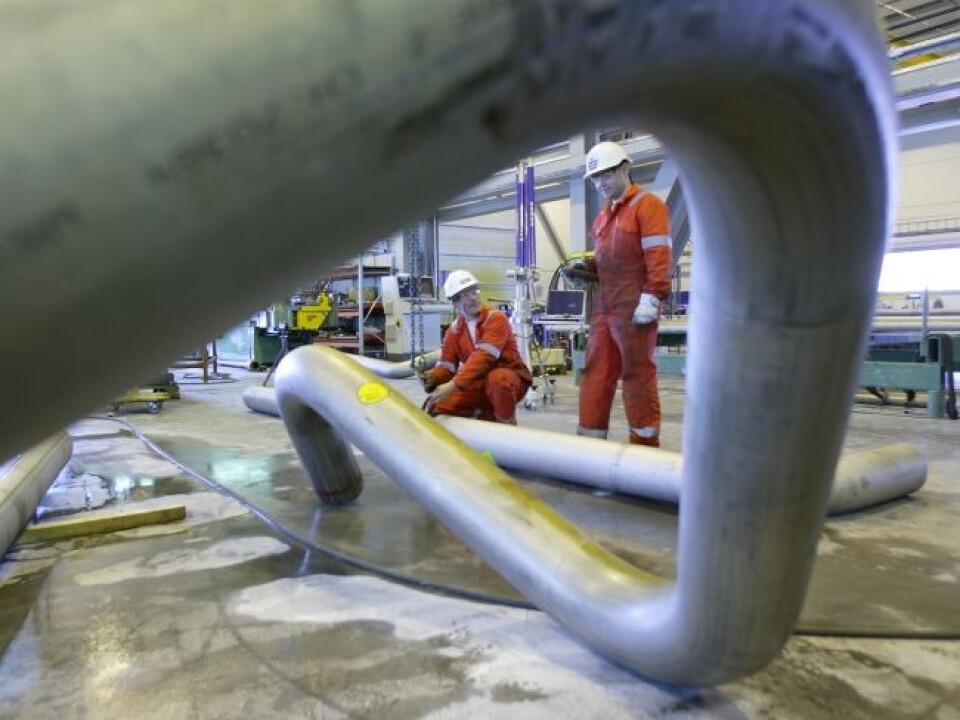An article from Norwegian SciTech News at SINTEF

Flat organisations confuse foreign workers
And confused workers reduce Norwegian industrial efficiency.
Denne artikkelen er over ti år gammel og kan inneholde utdatert informasjon.
Norwegian researchers want to find a way of organising work which promotes the Norwegian participatory model while at the same time maintaining high production efficiency in the presence of high proportions of contract workers.
"In this project we shall, among other things, construct a model in which we will clarify what foreigners should expect to find when they come to work for a Norwegian company" says Hanne Finnestrand at SINTEF.
"We aren't talking about employment rights and obligations, but work and management practices and clear communication; about requirements and the expectation that workers should get involved and take responsibility for major aspects of the internal value chain", she says.
Like a house of cards
Both the construction and supply industries have found that a culture clash takes place when eastern Europeans come to work in Norway. They are used to a strict hierarchical working regime and more direct leadership styles than we practise here.

In flat, Norwegian organisationaI structures, projects are frequently managed by skilled workers who assume responsibility for, and plan and coordinate, tasks.
"There is nothing wrong with foreign workers' technical skills and expertise. They have simply been brought up in another industrial culture", says Finnestrand.
This situation has had an impact on Norwegian companies, and has created problems linked to management and efficient operation.
"Several Norwegian companies fall apart like a house of cards", adds Finnestrand, referring to interviews conducted with managers in the shipyard, construction and supply industries.
"Skilled foreign workers prefer and are used to being told what to do".
"Norwegian companies with a high proportion of foreign workers are thus experiencing a reversal to multi-layered organisational structures which were the norm 30 years ago. Micromanagement entails higher management and supervisory costs, which in turn leads to companies pricing themselves out of the global market", says Finnestad.
Information and communication
Researchers will now be working together with the companies to find out how they should structure themselves in terms of skills development, communication and management practices, so that they can become good hosts and at the same time maintain efficiency and development levels.
"We are evaluating tools already available on the market", says Finnestad. "E-learning may be one approach. Another idea is the use of information screens in the workplace", she says.
"Since, among themselves, workers from Poland and the Baltic states often only speak their own languages, visualising operations on a screen may help to lower barriers to reading and writing", she adds.
How do you achieve learning?
Finnestrand emphasises that they won't just be developing a training programme, but also helping towards creating an organisational concept.
"When skilled eastern European workers come to Norway, it's often for only a few months at a time. In these cases training programmes provide only a short-term solution for the companies", she says. "On the other hand, an organisational concept will be seen as a fundamental part of the company, sending out a clear 'this is how we do things here' message", she adds.
Well underway
The four-year project is now well under way, and researchers are currently out in the production environment conducting interviews, making observations, and having discussions with people in all parts of the company.
All suggestions and ideas for improvement will be tested with skilled workers, union representatives, managers and other employees in the building and construction and supply industries.

































